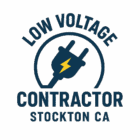Protecting Stockton Homes: Why More Residents are Investing in Low Voltage Security
Introduction
Stockton, California, has seen a growing demand for home security solutions in recent years. With concerns about property crimes, evolving technology, and the need for cost-effective safety, many residents are turning to Professional Low Voltage Installers for reliable security systems as their first line of defense. Unlike traditional high-voltage electrical systems, low voltage solutions provide reliable security with enhanced safety, energy efficiency, and flexibility. This article explores why Stockton homeowners are making this shift, what low voltage security entails, and how it can protect families, properties, and businesses alike.
Table of Contents
- What Is Low Voltage Security?
- Why Stockton Residents Are Prioritizing Home Security
- Key Benefits of Low Voltage Security Systems
- Safety and Reliability
- Energy Efficiency
- Smart Home Integration
- Cost Savings
- Common Low Voltage Security Solutions
- Security Cameras
- Alarm Systems
- Access Control
- Structured Cabling
- Professional Installation vs. DIY: What Stockton Homeowners Should Know
- Future Trends: How Security Technology is Evolving
- Conclusion
- FAQs
- References
What Is Low Voltage Security?
Low voltage security refers to systems that operate at 50 volts or less, often powered by 12V, 24V, or 48V circuits. According to the National Electrical Code (NEC), low voltage wiring is categorized as Class 2 or Class 3 circuits, making it safe for residential use. These systems are commonly used for CCTV cameras, alarm sensors, intercoms, and structured cabling.
In contrast to standard 120V electrical wiring, low voltage reduces the risk of fire and electrical shock while allowing for more flexible installation. This makes it ideal for homes in Stockton seeking modern, scalable security without the hazards or energy consumption of high-voltage systems.
Why Stockton Residents Are Prioritizing Home Security
Stockton has historically faced higher-than-average property crime rates compared to other California cities. According to FBI Uniform Crime Reporting (UCR) data, property crimes such as burglary and theft remain a concern in urban and suburban neighborhoods. As more residents look to safeguard their homes, the demand for accessible, cost-effective, and reliable security has surged.
Beyond crime prevention, the COVID-19 pandemic accelerated interest in remote monitoring and smart home technology. Families want the ability to check in on their homes from anywhere, integrate cameras with mobile apps, and receive instant alerts if something seems off. Low voltage security systems make this possible.
Key Benefits of Low Voltage Security Systems
1. Safety and Reliability
Low voltage systems are far less likely to cause electrical hazards. With reduced fire risks and safer wiring requirements, they’re suitable for homes, apartments, and commercial properties alike.
2. Energy Efficiency
Operating on lower power consumption, these systems reduce electricity costs. For example, a typical CCTV camera running on 12V consumes significantly less energy than comparable high-voltage equipment.
3. Smart Home Integration
From motion sensors to app-controlled locks, low voltage systems seamlessly integrate with smart home ecosystems like Google Nest, Ring, and Alexa-enabled devices. This adds convenience alongside security.
4. Cost Savings
Because installation often requires thinner wiring and smaller power supplies, low voltage systems are usually more affordable to install and maintain compared to traditional high-voltage systems.
Common Low Voltage Security Solutions
Security Cameras
Modern IP and CCTV cameras powered by low voltage wiring allow 24/7 monitoring with HD recording, night vision, and mobile access.
Alarm Systems
Low voltage alarms detect intrusions, glass breaks, or motion, sending instant alerts to homeowners and monitoring centers.
Access Control
From electronic door locks to intercoms, low voltage access systems improve both safety and convenience for Stockton residents.
Structured Cabling
Organized low voltage cabling supports reliable connections for cameras, alarms, and data networks, ensuring long-term scalability.
Professional Installation vs. DIY: What Stockton Homeowners Should Know
While DIY kits are widely available, professional low voltage contractors in Stockton provide several advantages:
- Code Compliance: Professionals follow NEC standards and local building codes.
- System Integration: Experts ensure cameras, alarms, and access control work together seamlessly.
- Future-Proofing: Professional installations are designed for scalability, so adding devices later is simple.
- Maintenance & Support: Contractors provide troubleshooting, upgrades, and warranties.
DIY may save upfront costs, but professional installation ensures long-term reliability and peace of mind.
Future Trends: How Security Technology is Evolving
Security technology is advancing quickly, and low voltage systems are at the forefront:
- AI-Powered Cameras: Detect suspicious activity with greater accuracy.
- Cloud-Based Monitoring: Securely access video footage from anywhere.
- Wireless + Wired Hybrid Systems: Offer the flexibility of wireless with the reliability of wired.
- Energy-Efficient Designs: Solar-powered low voltage systems are gaining popularity in California.
For Stockton homeowners, these innovations mean smarter, safer, and more sustainable home protection in the years to come.
Conclusion
Low voltage security systems are no longer just an option—they’re becoming the standard for modern Stockton homes, reflecting the growing importance of fiber optic cabling in today’s connected world. With advantages in safety, cost savings, energy efficiency, and smart home integration, it’s clear why more residents are investing in this technology. Whether through professional installation or carefully planned DIY setups, low voltage security provides the reliable protection Stockton families deserve.
FAQs
1. What qualifies as a low voltage security system?
Any security device operating on 50 volts or less, such as cameras, alarms, and access control systems.
2. Are low voltage systems safer than high voltage?
Yes. They carry less electrical risk and are specifically designed for safe residential and commercial use.
3. Can I install a low voltage system myself?
DIY is possible, but professional installation ensures compliance, integration, and long-term reliability.
4. Do low voltage systems work with smart home devices?
Absolutely. Many systems integrate with popular smart platforms like Google Home, Alexa, and Ring.
5. Are these systems cost-effective?
Yes. They use less energy, require smaller power supplies, and often have lower installation costs
